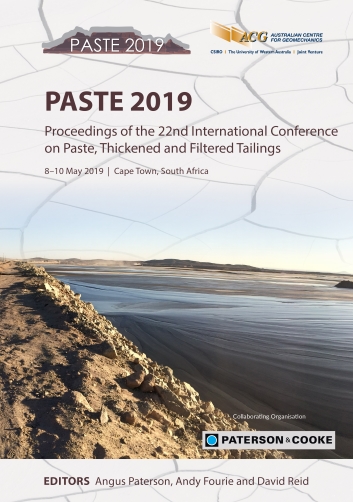Severe service valves for applications with high percentages of solids

|
Authors: Waters, R |
DOI https://doi.org/10.36487/ACG_rep/1910_42_Waters
Cite As:
Waters, R 2019, 'Severe service valves for applications with high percentages of solids', in AJC Paterson, AB Fourie & D Reid (eds), Paste 2019: Proceedings of the 22nd International Conference on Paste, Thickened and Filtered Tailings, Australian Centre for Geomechanics, Perth, pp. 551-562, https://doi.org/10.36487/ACG_rep/1910_42_Waters
Abstract:
The technology behind industrial applications such as fluids with high percentage solids continues to evolve, as do the corresponding regulations and specifications that ensure the safety of workers and the environment. Valves make up key aspects of this technology and often represent the single point of failure for entire operations. More often than not, the valves being used in high percentage solids applications are known as severe service valves (SSVs) due to their ability to withstand extreme conditions. Most experts agree that SSVs are identified by applications, and that these applications are challenging to the valve’s ability to provide a minimum acceptable level of performance over a minimum acceptable duration. This paper serves to determine what the minimum requirements are for SSVs in high percentage solids applications specifically concentrating on paste and thickened tailings.
Keywords: abrasion, erosion, tight shut-off, severe service valves, commodity valves, concentrate, general purpose valves, guided shear gates (GSG), high velocity oxygen fuel (HVOF), metal seated ball valves (MSBV), paste, slurry, thickened tailings
References:
Wasp, EJ, Kenny, JP & Gandhi, RL 1997, Solid-Liquid Flow Slurry Pipeline Transportation, Trans Tech Publications, Clausthal.
© Copyright 2025, Australian Centre for Geomechanics (ACG), The University of Western Australia. All rights reserved.
View copyright/legal information
Please direct any queries or error reports to repository-acg@uwa.edu.au
View copyright/legal information
Please direct any queries or error reports to repository-acg@uwa.edu.au


